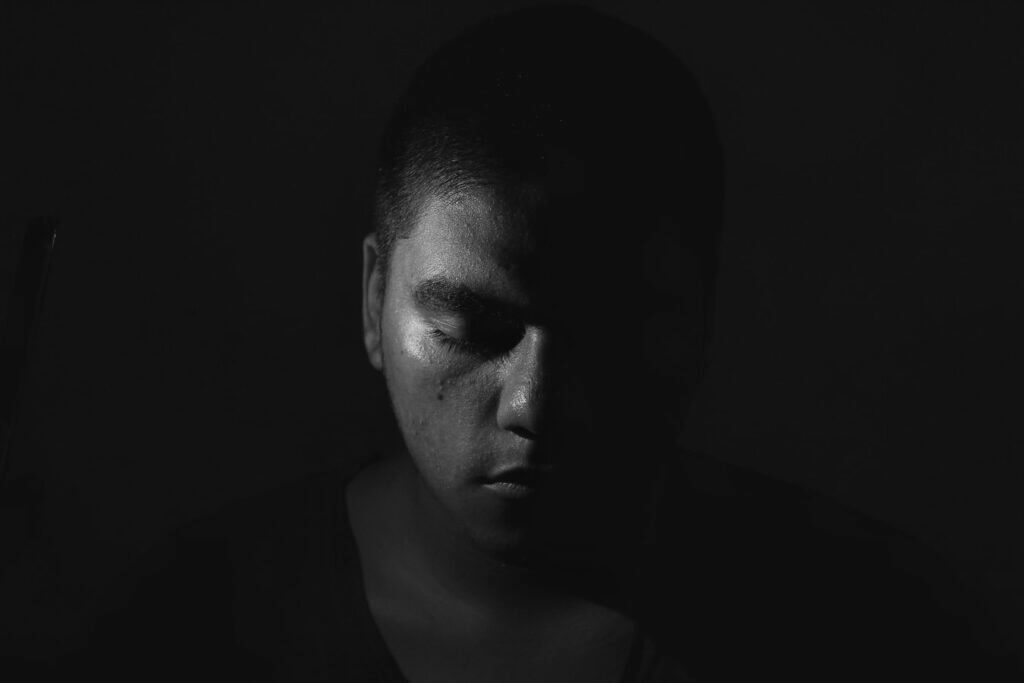Men’s Health Week 2020 – A Perspective on Mental Health
The lack of awareness about men’s mental health has been alarming to say the least. Through Instagram (@spoonful_of_sarah) I found out it was Men’s Health Week. Confusion. Sadness. Frustration. Apart from her Instagram I hadn’t seen any other promotion of Men’s Health Week.
I felt conflicted… what should I do? I have a platform. I have influence. However this site, my Instagram had been targeted toward women.
Should I say something? Did I have a right to say something? Who was I to say something?
If I wasn’t going to say something who would?
Off the back of the Black Lives Matter movement, if I stayed silent what did that say about me? What good does that do? If I say it wrong did I at least try?
So I decided to make a post based and share information about men’s mental health. I had never expected such a huge response from the community. I had hoped if that one man had seen it or one man had been helped then it was all worth it.
This experience made me really question the stereotypes and assumptions about mental health in relation to men. It made me realise why I only sought to speak to women? Beyond my gender experiences, there are experiences and commonalities that I as a woman also share with men.
Before diving deep into my personal opinion and take of mental health and men please note:
- I am not a medical professional and hugely encourage seeing a doctor/psychologist/psychiatrist – their expert advice is invaluable
- This is my personal opinion and words. A take by a 26 year old female Australian shaped by other factors such as my heritage, life experiences, values etc.
Toxic Masculinity
For many men, struggling with a mental health issue means suffering in silence. Declining but still present stigmas around acknowledging mental health issues, as well as problematic ideas of masculinity often play heavily into men’s reluctance to seek help. This isolation can have disastrous effects, including increased rates of alcohol and substance abuse, as well as depression and suicide, which are ranked as a leading cause of death for men.
As mentioned in the article above, we have seen men in popular culture suffer in silence (at least from an outside perspective); Tragic deaths of men around the world by suicide have been heartbreaking, alarming and awakening such as Anthony Bourdain, Ernest Hemmingway, Kurt Cobain, Robin Williams and Sushant Singh Rajput. May they rest in peace. May we hope that their deaths help and prevent other men from the same outcome.
Defining Traditional and Toxic Masculinity
There is a range of masculinity ideologies but most people have often used traditional and toxic masculinity to mean the same things, which are not.
Four areas of masculinity in society:
“no sissy stuff” (i.e., men should avoid anything feminine or associated with females)
“the big wheel” (i.e., men should strive for success and achievement)
“the sturdy oak” (i.e., men should not show weakness and handle their problems independently)
“give ’em hell” (i.e., men should seek adventure, be risk takers, and use violence if necessary).
It has been discussed that this traditional masculinity ideology reflects the dominant view of the male role prior to the feminist deconstruction of gender roles.
In fact my partner shared a podcast with me where the group discuss men being gaslighted. It is astounding to think people don’t think men get gaslighted too and that men feel ashamed when they are. A preview of the podcast is below and you can find the full podcast episode too – worth a listen!
Men don’t have emotions, they don’t cry…
This is horrible and I believe perpetuated by what we see in the media. So rarely do we see on TV or in a movie a male crying. When we do see emotions it can be on extremes: happiness or anger. Given this lense of life, it can feel strange to see a man cry when really it is not.
To the men out there – I personally think seeing a man cry is beautiful in a way – like anyone who cries it is a beautiful release, it is cathartic, it is freeing. We are all humans. We are not robots. We all have emotions whether we choose to show it or not. Just know, that it is okay to cry.
There is nothing weird or unmasculine about it. It takes strength to cry.
I think this is further perpetuated by dating culture – it’s easy for women to fall into the trap about a guy who treated her wrong, the jerk, the playboy, the charmer, the ghoster, the one who has left you high and dry as if he didn’t feel a thing. Yes that may be the case some times but we never truly know what is going on with another person. Try to see it from the perspective of not taking it personally, everything we experience in terms of our feelings and thoughts are shaped by our own experiences. Some times it really is not personal.
Further to this the phrase ‘man up’ is really damaging to young men growing up. When men are told this they may think ‘I am not manly because i’m doing X…’ As a society we have to be conscious of the words we use and the power of language. We need to change this.
Mental illness is caused by a personal weakness.

No. A lot of factors play into why people have mental illness. Beyond Blue sums it up nicely for everyone.
You are not weak for having a mental illness, in fact I think it is fair to say that many of us during our lifetime will experience feeling down or mental illness.
Everyone’s mental health varies during their life, and can move back and forth along their own personal range between positive and healthy at one end through to severe symptoms or conditions that impact on everyday life at the other, in response to different stressors and experiences.
BEYOND BLUE
Men can control their feelings
Nope. Like other humans, we cannot control our feelings. I like to think of them like clouds, passing by uncontrollably. They are fleeting moments.
“Emotions are celebrated and repressed, analyzed and medicated, adored and ignored — but rarely, if ever, are they honored.”
Karla McLaren
Real men don’t ask for help
No. They do. It takes strength to ask for help. Even talking to someone is a sign of strength. Whilst at times it may feel like talking about it won’t help the situation it will. You will be surprised by what others have to share about their own experiences and you never know how someone can connect you to someone who can help. The National Alliance on Mental Health sums it up with a great analogy.
Trying to battle a mental health condition on your own is like trying to push a boulder up a mountain by yourself—without a team to back you up, it’s going to be a lot harder.
THE NATIONAL ALLIANCE ON MENTAL HEALTH
Your anxiety, depression or feelings will be a burden on others

Absolutely not. Think of yourself as a friend, you would do anything to help them… why wouldn’t they do the same for you? This is what friends, family members, coworkers are there for…. they are there for support, for help. There are even professions purely based on helping! They go through years of studying, obtaining qualifications and gaining experience so they can help you.
Men and relationships
As a huge stressor and cause of potential anxiety and depression for men, If I may offer you some advice that also equally applies to females.
- When you are with the right person they are going to love you for who you are. Your flaws, your strengths and everything in between. You won’t feel constantly sad, ashamed, angry, fearful etc.
- Know your worth and do not be afraid of being alone. It is much better to be single then in an unhappy relationship.
- Communicate, communicate, communicate. Be true to yourself. Honour your feelings. If you partner triggers you or makes you feel upset – discuss! Communicating clearly avoids any assumptions as we cannot mind read!
- Allow yourself to be vulnerable. Our vulnerability brings us closer together to other people, no one is perfect.
“Vulnerability is not winning or losing; it’s having the courage to show up and be seen when we have no control over the outcome. Vulnerability is not weakness; it’s our greatest measure of courage.”
Brené Brown
How as a woman you can help a man you know
From one woman to another, here are some ways I believe you may be able to play a role to help any man in your life.
- Truly ask how he is and check in? It is rare for men to discuss their feelings with other men due to stereotypes of masculinity. Create a safe space for him to open up. Truly listen – we don’t always have to have a solution or an answer, he may just want to be heard.
- Embrace your man and his emotions – reassure him and let him know it’s okay to have feelings, to cry, to be sad, to be anxious, to be depressed, to be down.
- Educate yourself, learn the warning signs of anxiety, depression and mental illness. Observe any behavioural changes.
- If you suspect he is down or needs help, with love, kindness and respect, encourage him to see a health professional.
A special Thank You
I want to thank my partner, who has allowed himself to open up and be vulnerable with me by sharing his experiences. Thank you, I love you! Thank you for always supporting me, it truly warms my heart.
In Conclusion
If you are a man reading this or a woman reading this or a someone – you are not alone.
Please reach out and speak to someone you know, to a friend, a family member, a health professional.
“Because in our pain we must find each other – mirror to mirror the grace of our shared humanity, the stunningly broken beauty of our shared grief.
And you can let your grief see my grief and let our tears mingle into some kind of healing alchemy, and you’ll know what i know.
That we are never alone.
I promise. You and me? We are never, ever alone.”
Jeanette LeBlanc
Please find further resources in the next section of this article and whenever in doubt you can contact me through the contact page via email or my instagram @inhervitality.
Resources for Men and Mental Health
Health Direct – Mental Health Resources for Men
Whilst these are Australia specific please note a search on the terms “Men’s mental health” will usually produce a fair amount of resources – please do due diligence to check the sourcing for example but not limited to mental health organisations, government departments etc.
